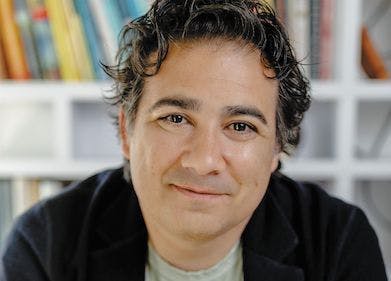Novelist Takes an Intriguing, Fresh Approach to the Sylvia Plath Story
A biographical novel that heightens the mystery of what is still missing in the biography of Sylvia Plath.

‘The Last Confessions of Sylvia P.’
Lee Kravetz
Harper, 259 pages
Lee Kravetz joins a seemingly never-ending effort by novelists to fill in the fissures and missed connections of numerous biographies, in this case of the poet Sylvia Plath.
Written as a mystery, “The Last Confessions of Sylvia P.” surpasses the notable achievements of Kate Moses’s “The Wintering: A Novel of Sylvia Plath” (2003) and Connie Palmen’s “Your Story, My Story: A Novel” (2021), which presents poet Ted Hughes’s rebuttal to his critics regarding his relationship with Plath.
Mr. Kravetz eschews the protocols of most biographical novels that invent details but hew close to the historical record. He instead uses three intersecting narratives to create an alternative reality: A handwritten copy of “The Bell Jar,” in three spiral notebooks with annotations and revisions, is discovered in an old house and is to be auctioned. What is its provenance?
Narrator 1: Estee, the master curator of St. Ambrose auction house, has to determine the manuscript’s authenticity. Narrator 2: Boston Rhodes, who writes a letter to Robert Lowell about her rival, Plath, in Lowell’s poetry class. Narrator 3: Ruth Barnhouse recounts her treatment of Plath, recovering in McLean Hospital from an attempted suicide that led to the creation of “The Bell Jar.”
This novel proceeds by indirection, rarely placing Plath at the center. She speaks and she is observed, but the Plath of the journals and the letters is absent, which means we have to take her on as we do most people — without access to her inner life and without the pile of evidence that trails after her in most fiction and biography.
Mr. Kravetz has found a refreshing way to reorient not only perceptions of Plath but of the intricate concatenation of events that make up a life, as Plath is triangulated between different sensibilities with quite different motivations. The poet’s own elusiveness is part of the novel’s point. Some biographical novels resolve mysteries; few heighten them as Mr. Kravetz’s does.
A reviewer would probably not be forgiven for revealing the manuscript’s provenance, especially in this case because the three narrators all have their part to play in establishing the authenticity of this prized artifact. It is not revealing too much, though, to say the importance of the notebooks goes way beyond what Plath wrote in them.
The novel explores who has a right to Plath’s words in an auctioned copy of a novel not meant for publication. What happens to the people who become so attached to Plath and to her story?
Boston Rhodes is an invented character reminiscent of Anne Sexton and yet independent of the relationship Sexton had with Plath. Even Barnhouse and Lowell, while recognizable, traverse trajectories different from what appears in their biographies. Readers of those biographies and the biographers of those subjects might well ask Mr. Kravetz: Why invent? Why change the story?
By focusing on a copy of “The Bell Jar” that differs from the published version, Mr. Kravetz has shifted our attention to the import of Plath’s legacy, and how that legacy has played out in the lives of others — who want to take control of the artifact as part of a sorting out of their lives. In the end, what is left of Plath herself and of what Plath wanted?
The novel makes much of Plath’s desire to make the process of her writing invisible. To invade that process, to auction it off, to make a public spectacle of it, to put a price on it, becomes a crime against the poet, one of several in “The Last Confessions of Sylvia P.” It even features Lowell showing up at Barnhouse’s home to declare his guilt.
At the end of the novel, the master curator sums up a long career of dealing with “disparate objects, each one solely possessing the power to absolve us of our unforgivable sins against them.” Those words rebuke not only curators, biographers, and collectors — the industry that has arisen around the poet — but the whole lot of us, including the readers of “The Last Confessions of Sylvia P.”
Mr. Rollyson is the author of “American Isis: The Life and Art of Sylvia Plath” (2013), “The Last Days of Sylvia Plath” (2020), and, forthcoming: “Sylvia Plath Day by Day,” in two volumes, and “The Making of Sylvia Plath.” Podcast: A Life in Biography.

